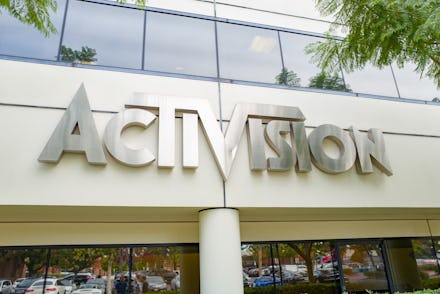Activision's culture of harassment is part of a larger problem
The video game giant is a microcosm of widespread issues in the gaming industry.

According to a new report, major video game developer Activision Blizzard appears to have fostered a widespread culture of sexual harassment and assault for years. The investigation from the Wall Street Journal details a workplace that has consistently protected employees accused of misconduct, and ignored or systematically silenced seemingly countless women who have suffered under the company’s “frat boy culture.” The litany of harassment claims that were swept under the rug often revolved around excessive drinking at the offices, and in one instance, a woman employee died by suicide after an explicit photo of her circulated at a company party.
The report, though, appears to just be the tip of the iceberg. Activision, the massive video game developer behind hit franchises such as Call of Duty and World of Warcraft, has been under scrutiny by multiple regulatory agencies for the past few years for its handling of misconduct. Since the California Department of Fair Employment and Housing filed a lawsuit in July, the company “has received more than 500 reports from current and former employees alleging harassment, sexual assault, bullying, pay disparities and other issues, according to people familiar with the matter,” Wall Street Journal reports.
"The story centers most prominently on the company’s CEO Bobby Kotick, who, documents reveal, failed to disclose allegations including rape (one employee’s reports to HR and other supervisors about being raped twice by a male supervisor resulted in no action, until a lawsuit was threatened and led to an out-of-court settlement) to the company’s board of directors, and actively protected accused employees while ignoring survivors.Kotick himself has also been accused of harassment by a former assistant, who received a threatening voicemail in which he threatened to “have her killed,” according to the report.
The response from Kotick and Activision has been largely optical and empty, and has only come in response to its probes from, alongside the California lawsuit, the Securities and Exchange Commission and the Equal Employment Opportunity Commission. A spokeswoman claimed the company plans to ban alcohol in the office. In August, Jennifer ONeal, a longtime Activision employee, was promoted to co-head of Blizzard, the first woman to lead one of Activison’s business units; but within a month, she sent an internal email saying that “it was clear that the company would never prioritize our people the right way.” In the past, Oneal herself had been sexually harassed at Activision, she wrote in the email.
As horrific a culture that Activision seems to have fostered, its issues appear to just be a microcosm of a problem endemic to the wider video gaming industry. In 2018, another video game giant, Riot Games, faced claims of a sexist culture that treated women as lesser employees. In 2020, Ubisoft was rocked by claims of physical violence and sexual harassment that ran rampant within the company — an issue that it apparently has failed to address despite promises to do so. In between, individual video game developers and prominent industry figures have been accused of sexual assault.
The issues exist on the consumer side as well: last summer, a wave of competitive gamers and streamers, mostly women, came forward online with stories of sexual assault and harassment that they faced as part of the gaming community. Many have referred to each of these instances as watershed moments in which the community is facing a MeToo reckoning. Yet, if the revelations around Activision indicate anything, it’s that reckonings can easily be stifled and swept away in a cloud of corporate denial and obfuscation. This is true even for vulnerable, public-facing consumers, as Twitch was heavily criticized and scrambled to respond to the online revelations last summer from survivors it failed to protect.
“We will do everything possible to make sure that together, we improve and build the kind of inclusive workplace that is essential to foster creativity and inspiration,” Kotick said in his most recent response to employees about the California lawsuit. The statement is one that can be swapped out for any response to the past few years’ of damning reports.